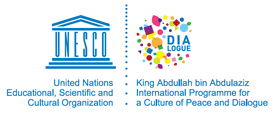Duration: 2 hours
KEY TOPICS
- New media and social interactions – social networking, etc.
- Communication technology and development
- Interrelations between changes in mass communication as a result of new technologies and changes in democratic institutions
LEARNING OBJECTIVES
After completing this unit, teachers should be able to:
- Analyze the effects of digital communication on the social and political life of a society
- Describe the use of one or two forms of new media to share knowledge and information on a current issue in society
- Evaluate how new media are used in mass communication and the impact democratic institutions and processes in society
PEDAGOGICAL APPROACHES and ACTIVITIES
Research and class discussion: Trainees undertake small-scale research to evaluate the impact of digital communication technologies on development; this should include learning about the media platforms used in their country and how the media present their country to the outside world. Trainees should visit their country’s website and discuss in groups how the country is being projected and how it compares with neighbouring countries. They should list other features they would like included in the image of their country shown to the outside world. A class discussion should be used to discuss the findings.
Survey and group presentation: Trainees carry out a small-scale survey to investigate the impact of traditional mass communications and new media (e.g. community radio; private, regional and national newspapers; and the Internet) on audience participation in a social, economic or political debate. Examples of topics for the survey could be HIV/AIDS education, or social justice for minority groups. In particular, it might be worth focusing on the role of mobile phones and social networking applications (e.g. Facebook and Twitter), as tools to mobilize groups. More generally, trainees could discuss: Who are the media owners? Who creates the messages, and what is the key message being conveyed? What audiences do they attempt to reach and why do they target them? Who are their sponsors/investors, and what would they do differently? How do traditional and online media vary in this respect?
Class discussion: The tutor should lead a general class discussion on which of the new media are used predominantly in the trainees’ environment: the Internet, mobile technologies (e.g. SMS and smart phones applications), digital TV, digital radio, computer games/online games (e.g. virtual reality games, such as SIMS). The discussion should explore the advantages and disadvantages of these new media. Before this activity, trainees should carry out interviews, possibly in both rural and urban communities, on the use of mobile phones. From these interviews, they should present to the class what they see as the impact of mobile phones on users’ social, economic and political lives.

